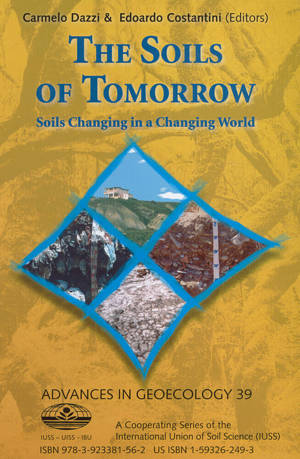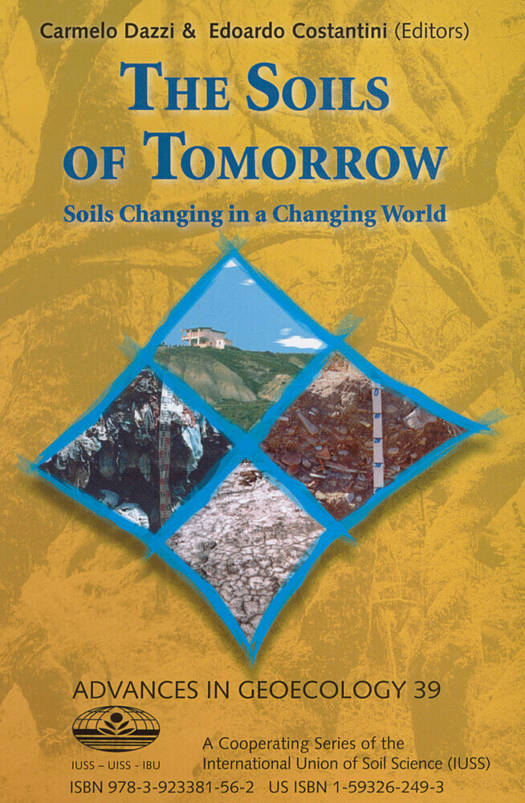
- Retrait gratuit dans votre magasin Club
- 7.000.000 titres dans notre catalogue
- Payer en toute sécurité
- Toujours un magasin près de chez vous
- Retrait gratuit dans votre magasin Club
- 7.000.000 titres dans notre catalogue
- Payer en toute sécurité
- Toujours un magasin près de chez vous
The Soils of Tomorrow
Soils Changing in a Changing World
137,45 €
+ 274 points
Description
This book gathers a selection of peer-reviewed contributions presented and discussed at the successful 5th ESSC Congress held in Palermo, Italy, between June 25-30 2007. In keeping with the title of the Congress, "The Soil of Tomorrow: Soils Changing in a Changing World", this book analyzes and discusses the state of the art and future perspectives of soils. Many of the contributed papers are interconnected with socio-economic and environmental changes underway in EU countries and elsewhere. Modern society has placed demands on the academic soil science community for new perspectives and orientations in rapidly changing scenarios affected by strong social and biophysical driven forces. The steady trend in the changing pattern of soil use in Europe envisages important future consequences for the landscape, for agrarian production, and for the functioning of terrestrial ecosystems. This book is arranged under eight separate but interrelated headings: Soil and society, Soil erosion, Soil organic matter, Soil degradation and desertification, Soil pollution and contamination, Soil conservation and soil quality, Policies for environmental conservation in a global society, and New approaches and technologies for soil assessment. There are many questions regarding adequate approaches for the sound management and efficient use of soil as a basic natural resource. The management of land in Europe has always been a complicated issue. The difficulties in developing an EU Soil Framework Directive clearly show the importance and complexity of the challenge. However, uninformed decisions regarding soil management could have irreversible negative consequences. We are already familiar with massive land use changes though urbanization or extreme soil degradation through desertification processes. The book offers reflections, analysis, facts, new data, suggestions and recommendations on soil issues that need to be addressed. We hope the contributions from this book will help in the continuous and never-ending process of improved and more intelligent interaction with soil - the crucial element in the functioning of the biosphere.
Spécifications
Parties prenantes
- Editeur:
Contenu
- Nombre de pages :
- 728
- Langue:
- Anglais
- Collection :
- Tome:
- n° 39
Caractéristiques
- EAN:
- 9783510653775
- Format:
- Livre relié
- Dimensions :
- 170 mm x 240 mm
- Poids :
- 1510 g






